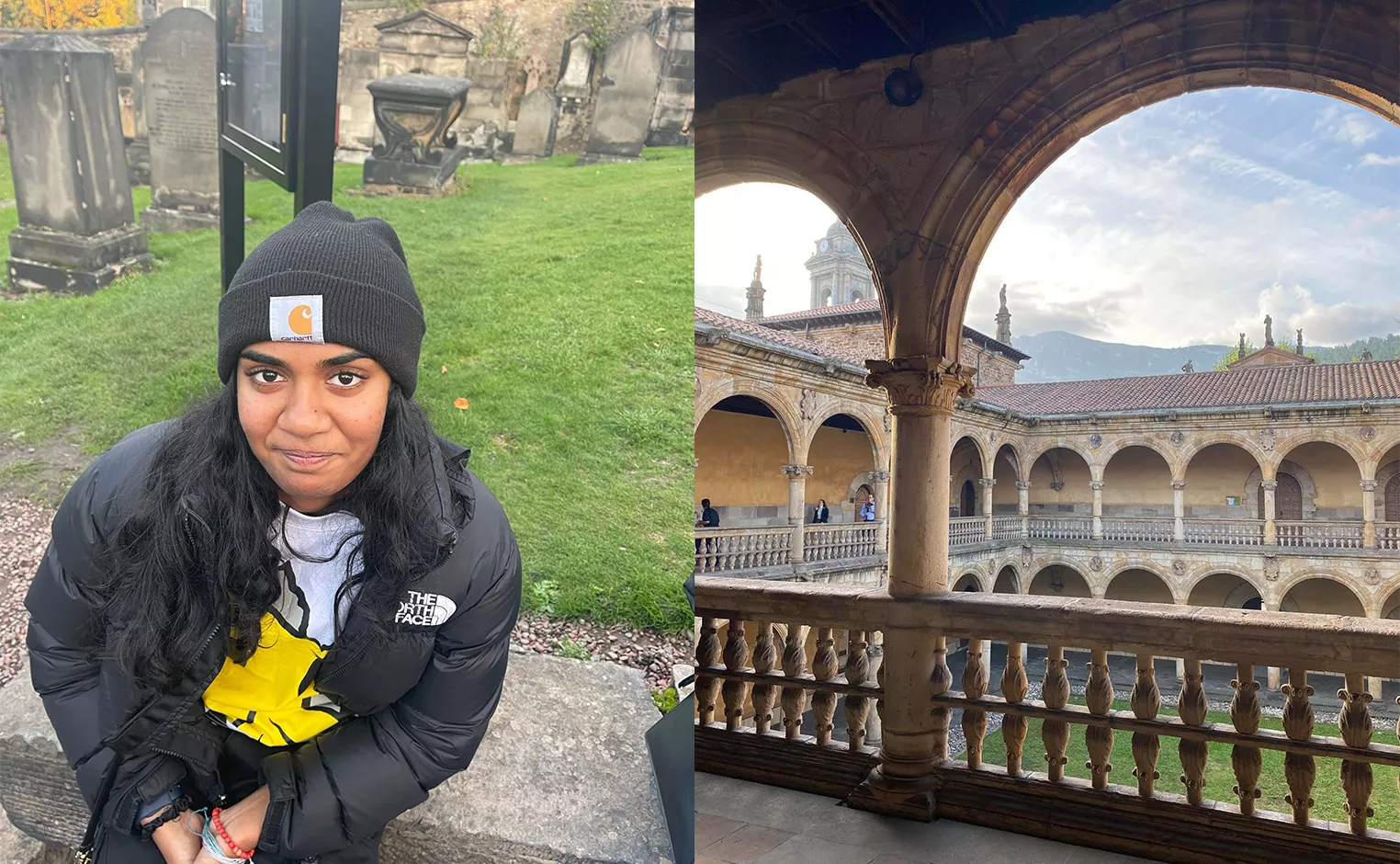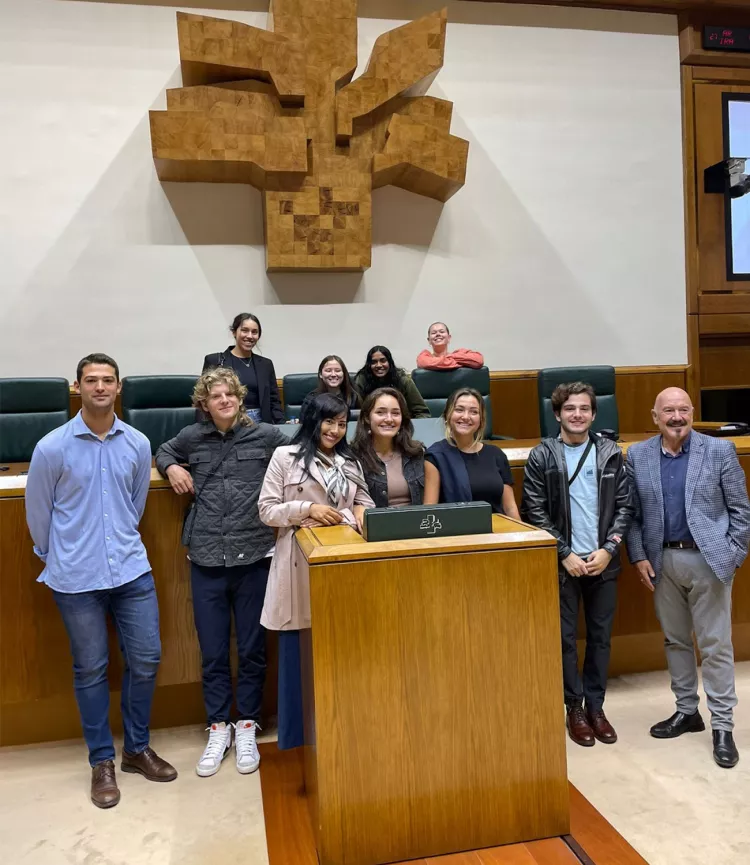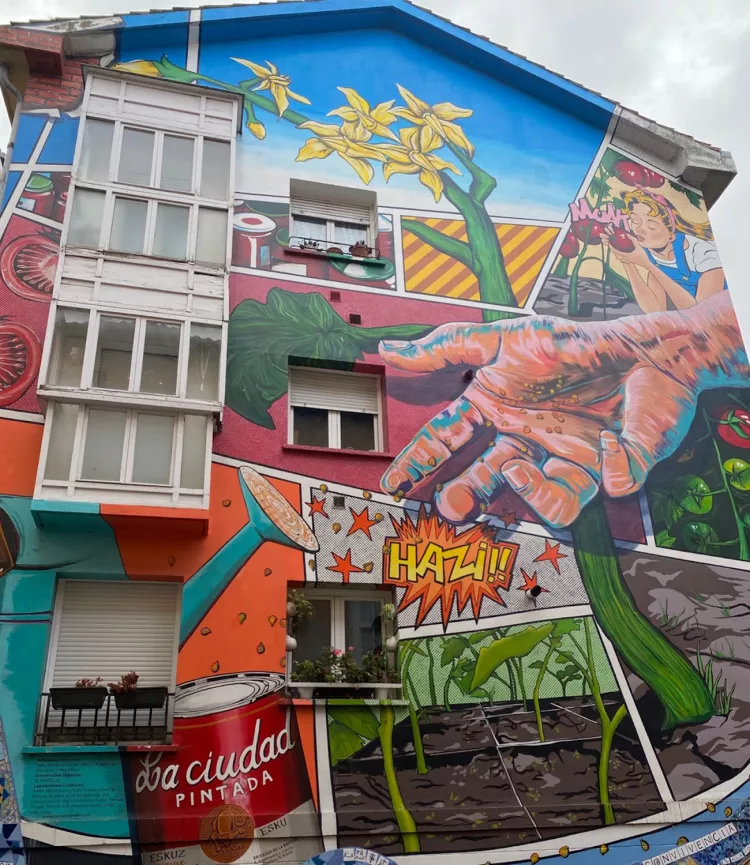Learning Outside the Classroom in the Basque Country and Beyond
By Oviya Kumaran '24

Photo credit: Oviya Kumaran '24 (Spain, SIT, fall 2022)
I studied abroad in Bilbao, Spain in the Fall of 2022. Like many Americans, of course I had heard of Madrid and Barcelona, but had never heard of the city of Bilbao. But now when I hear about Bilbao and the Basque region, my heart yearns to go back.
However, Bilbao goes beyond its city limits as it is a part of the Basque region. Its history and people go beyond the borders of Spain and spread into the Southern part of France too. As Spain was under a dictatorship for much of the 20th century, the Basque people were forced to no longer speak or teach their language and ignore much of their Basque identity. However the Basque people survived and are continuing the revival of learning of Basque, which is the oldest living language in Europe.Their legacy and continued fight for independence and autonomy was what my program was centered around.
My program, SIT: Policy, Law, and Regional Autonomy in Europe, took us on excursions every Friday all over the Basque region. While we generally had class Monday to Thursday for the first month and a half, we ended every week by taking excursions on Fridays. One of my favorite excursions was visiting the city of Vitoria where the Basque Autonomous Community Parliament is, and meeting with a representative of the Basque Nationalist Party. We were able to hear about their role and current initiatives in the parliament and ask them questions around independence, autonomy and how the parliament works. I saw firsthand how important issues of autonomy, independence and the Basque identity were to these representatives. It was amazing to learn from professors during the week about these topics and then be able to hear firsthand about the inner workings of the government.

My classmates and I at the Basque Parliament with two representatives Photo credit: Oviya Kumaran '24 (Spain, SIT, fall 2022)
We were also able to take a mural tour while we were there, as there are many murals throughout the city. Many of the murals were organized and done by the community members themselves. These murals were beyond beautiful and showed all kinds of images such as comic book-like art or words in different languages.

A mural that was done on an apartment building Photo credit: Oviya Kumaran '24 (Spain, SIT, fall 2022)
On another excursion, we visited Bayonne, which was about an hour away in the south of France. Here, we were able to understand how the Basque culture and society was surviving in France and how it differs from the Spanish side. We visited a museum all about Basque history and culture and later in the day visited an organization aiding immigrants and refugees in the area.

The view in Bayonne Photo credit: Oviya Kumaran '24 (Spain, SIT, fall 2022)
This perfect mix of in classroom learning and outside classroom experiences made my learning experience better than I could have ever imagined. Meeting with governmental and nongovernmental officials and organizations, visiting museums and cultural centers, and traveling all added greatly to my learning. And we continued our learning around regional autonomy by visiting Catalonia in Spain, another autonomous community and visiting Scotland. We spent a full week in both places and similarly visited their respective parliaments and were able to meet with representatives there as well. We spent quality time exploring so many factions of these areas from their history, language, culture, politics and more.
At Swarthmore, most of our studies often take place in the setting of a classroom. I was able to use my classroom knowledge and expand it with the excursions and trips we took. I found that abroad I fell in love with the learning that was done outside the classroom, meeting with leaders in the field,visiting museums, going on tours and being immersed in the culture and society.



